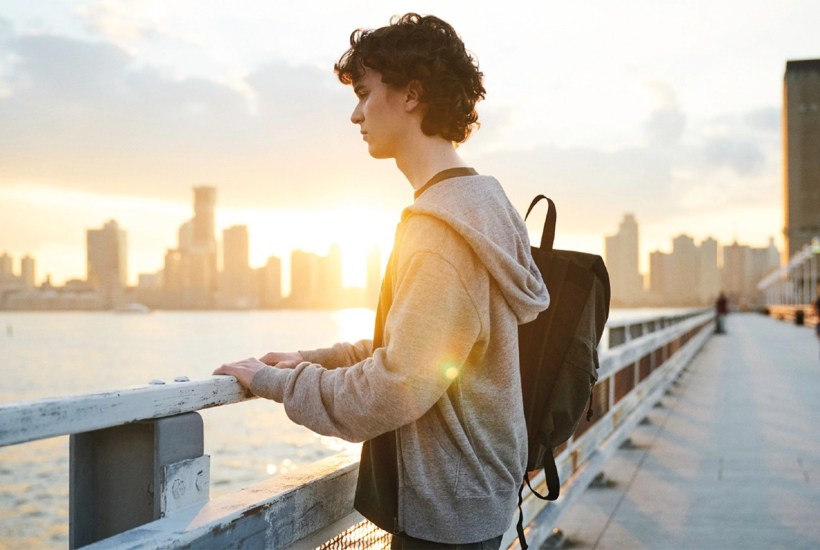For my money – and lots of other people’s – Florian Zeller’s 2020 film The Father was pretty much a masterpiece. Oscar-winningly adapted from his own play by Zeller and Christopher Hampton, it plunged us into the fractured world of Anthony, an old man with dementia (as Oscar-winningly played by Anthony Hopkins). With different actors playing the same characters and perfectly coherent scenes that kept contradicting each other, we shared Anthony’s struggle to work out who was who and what was what. The result provided a rare combination of tricksy intelligence and emotional punch.
Now, with The Son, adapted with Hampton from another of his plays, Zeller brings us another domestic catastrophe. This time, though, he tells it so straightforwardly that the film unmistakably resembles an old-school well-made play – and a slightly creaky one at that.
Hugh Jackman plays Peter Miller, whose status as a high-flying New York lawyer is immediately established by him saying ‘Hey Jessica, can you send me the Jackson file?’ into his phone. For about 30 seconds, Peter’s life seems idyllic as he smilingly watches his new wife Beth (Vanessa Kirby) singing their baby asleep. But then his ex-wife Kate (Laura Dern) shows up with news that their 17-year-old son Nicholas is skipping school and radiating unhappiness.
When Peter goes to see him, Nicholas explains that ‘my life is weighing me down’ and that ‘I feel like I’m going crazy’. He also wants to move in with his dad, who agrees with a carefully delineated mix of nervousness, determination, parental concern and guilt. After all, as Nicholas articulates just as clearly, it was Peter’s decision to abandon the family that has caused all the trouble.
The Son was first shown at the Venice Film Festival in September, where the critics were distinctly sniffy – mainly on the virtuous grounds that Zeller sees Nicholas’s depression primarily from the outside as a problem for his parents. Yet this is surely to miss the whole point of the film – which is to explore with sympathy rather than disapproval the parents’ reactions to something they can’t understand; and perhaps even to acknowledge (somewhat bravely, I’d suggest) that depressed people can be, among other things, quite annoying.
Nonetheless Peter does his best. The problem is that his best is hampered by a heartbreakingly understandable refusal (or maybe just inability) to see how serious Nicholas’s condition is. For him, every moment of mild happiness – a spot of cheerful TV-watching together here, some shared laughter there – is proof that a corner has been turned. We’re also made aware of how Peter’s best (like most of ours) is full of mixed motives. Of course, he wants his much-loved son to get better. But, of course too, he wants to prove his skill as a father, especially since his own dad (seen briefly in a show-stealing cameo from Anthony Hopkins) was such a monster.
The longer this goes on, though, the more something unexpected starts to happen: we begin to realise that there may be life in the slightly creaky well-made play yet. While the on-the-nose dialogue and spelling out of emotional shifts never go away, it would take a tougher viewer than me to resist the designs they so palpably have on us. At no point is there much doubt about what Zeller wants us to feel. In my experience, however, that doesn’t stop us from feeling it anyway, as he systematically illuminates every aspect of a situation that no amount of wishful thinking, willpower or love can fix. The Son may lack the tricksy-intelligence part of The Father’s appeal, but the emotional-punch part remains powerfully intact.
Got something to add? Join the discussion and comment below.
Get 10 issues for just $10
Subscribe to The Spectator Australia today for the next 10 magazine issues, plus full online access, for just $10.
You might disagree with half of it, but you’ll enjoy reading all of it. Try your first month for free, then just $2 a week for the remainder of your first year.














Comments
Don't miss out
Join the conversation with other Spectator Australia readers. Subscribe to leave a comment.
SUBSCRIBEAlready a subscriber? Log in